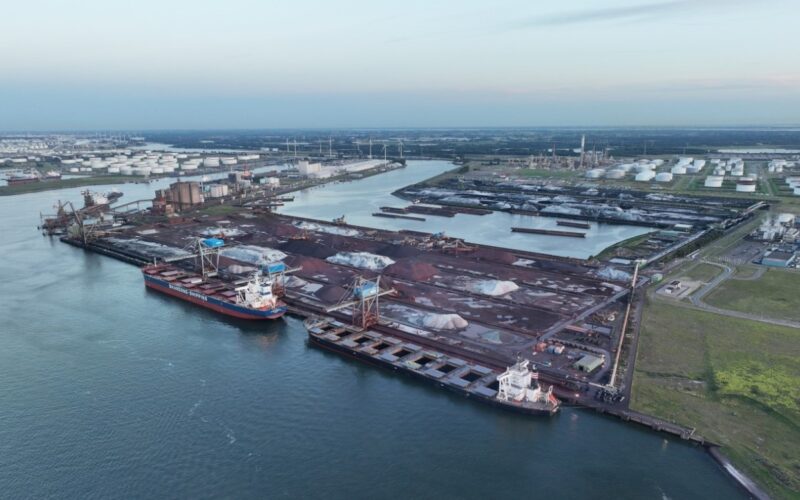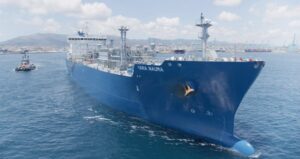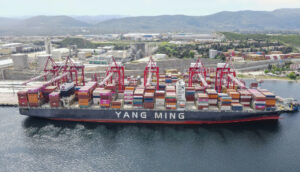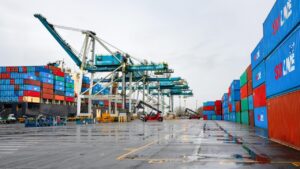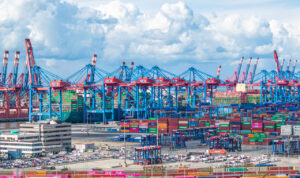Thyssenkrupp Steel has announced a multi-million dollar investment in modernising terminal operations at Ertsoverslagbedrijf Europoort C.V. (EECV) at the Port of Rotterdam.
Four powerful grab cranes at EECV’s terminal in the Port of Rotterdam will lift iron ore and coal out of the bellies of the large bulk freighters for steel production in the Ruhr region.
According to the port authority, an old ship unloader will be replaced by a state-of-the-art one, strengthening the future of EECV and thyssenkrupp Veerhaven.
The new ship unloader weighs around 2,000 metric tonnes, stands a good 60 metres high, 30 metres wide and has a crane boom length of around 100 metres. It is expected to be operational by the end of 2025.
With these crane dimensions, EECV will reportedly be able to unload the largest bulk freighters in the world at a highly productive rate of up to 2,600 metric tonnes of iron ore per hour.
To effectively reduce possible dust emissions, the unloader will be equipped with a water spraying and misting system in the bunker area. Noise emissions will be kept below the officially approved limits.
“The amounts of coal being transshipped will gradually decline from 2027 onward, but iron ore will still be needed for the production of climate-friendly steel,” said Dr Heike Denecke-Arnold, Chief Operations Officer (COO) at thyssenkrupp Steel.
“As a result, EECV and thyssenkrupp Veerhaven will transport the raw material for the new direct reduction plant in the future. With the new ship unloader and the proven push boat fleet, both companies will continue to ensure a reliable connection between the Port of Rotterdam and the green steelworks in Duisburg over the coming decades,”
READ: Port of Rotterdam supports ZEMBA green initiative
“With the new crane, we are investing in the future of EECV and the security of raw material supplies for thyssenkrupp Steel and HKM,” said Frank Tazelaar, CEO of EECV and thyssenkrupp Veerhaven.
“It will give us the flexibility to further develop our business as we move forward with phasing out coal from 2027 onwards,” Tazelaar added.

